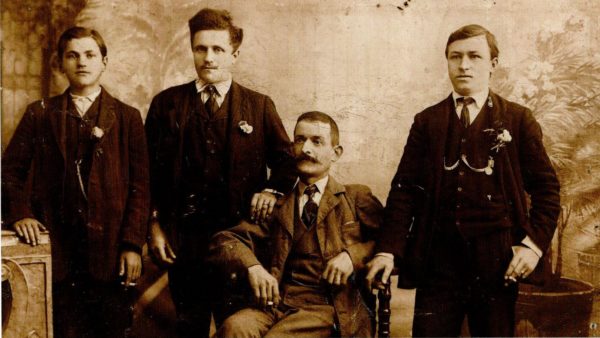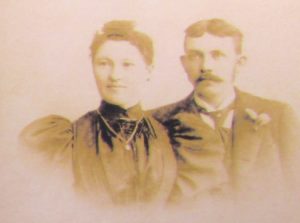This great mobility prevented Resia’s male population from permanently leaving their birthplaces, and instead allowed them to come in contact with new realities without eliminating the possibility of going back to the valley for celebrations or on other special occasions.
Towards the end of the 19th century, there was a gradual tendency to prefer temporary to seasonal migration. This was certainly due to the new condition of the knife grinders, who owned homes, managed shops, and formed societies in the places they arrived at.
The female population, on the contrary, usually stayed in the valley, where they were forced to take on domestic work, childcare, and the hard work in the fields and with farm animals.
The usual destinations of these trips were the main centres of the Empire, cities with booming businesses like Graz, Sopron, Praga, Budapest … that granted good financial possibilities and, to the most resourceful, represented the opportunity to build real enterprises in new thriving markets. Some Resian merchants with a great talent for business were able to organise successful workshops and “made their fortune”.
To this period belongs the story of the Pusca family from Prato di Resia that moved towards the heart of the Austro-Hungarian Empire in search of work, reaching the town of Sopron (German: Ödenburg) in today’s nothwestern Hungary, only 70 km away from Vienna, which was the destination of many Resian families. The town, a blooming trading centre, attracted artisans and merchants from all around the Empire.
The head of this family of knife grinders was Antonio Pusca , born in Resia on 13th March 1845. His wife Anna Bobaz from Lisciazze/Liščaca was born on 17th January 1849. The couple had four children: Giuditta, Adelaide, Maria, and Antonio.
Antonio Pusca moved to Sopron, where he worked as a knife grinder. He was very skillful, so he managed to earn a lot in a short time, providing a certain financial stability for his family, which is largely documented by the numerous pictures taken in sumptuous Hungarian photographic studios.
Later, his craft was not forgotten by the family, as his daughter Giuditta married the young Giuseppe Trancon (1866-1939) , who came from Lischiazze/Liščaca.
Giuseppe, who was another Resian immigrant in Sopron, became a famous knife grinder and made his fortune in that region. It is believed that he was appointed to sharpen the blades of the Imperial Austro-Hungarian court’s kitchen tools. The Trancon couple didn’t have any children and managed to accumulate a lot of money in a short time thanks to their thriving workshop. After they were affected by the terrible 1929 crisis, they had to move back to Resia. Trancon came back to the valley with suitcases full of unusable banknotes, devalued by the disastrous inflation that had hit the global economy, some pieces of furniture, silverware , and numerous photos.
Giuseppe Trancon’s brother-in-law, Antonio Pusca, left for the Sopron region too to learn the knife grinder’s craft. In the first decade of 1900, he moved to Graz, where he found a wife and a job in a small workshop. Soon he left Austria to look for his fortune overseas. Around 1920 he settled in Pittsburgh in Pennsylvania (U.S.A.), where he soon started his business.
In the U.S.A. he specialised, followed in later years by many other knife grinders in Italy, in sharpening surgical scalpels . Working for hospitals gave him a steady job, and his activity was very fruitful.



